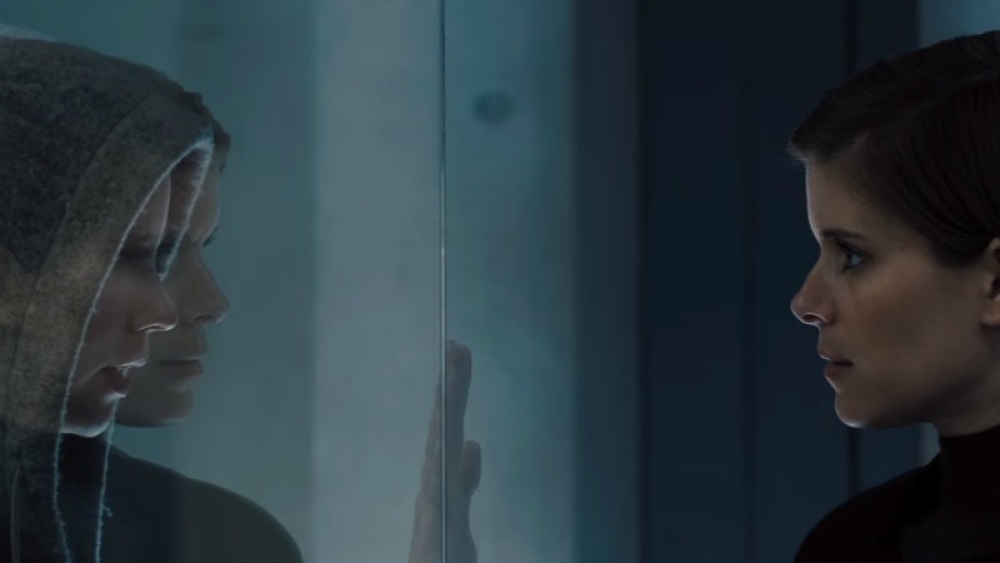Artificial intelligence and a new breed of agency
09 Sep 2016

A special round-up featuring new uses for artificial intelligence (with one adorable video and one spooky video) plus the latest on a new type of agency developed by Omnicom for McDonald's
“The lightbulb changed the world; Facebook is just a way of letting people click ‘like’ on photos of cats that resemble Colonel Gaddafi” wrote Whoops! and Capital author John Lanchester just a year ago. In his recent work Lanchester had done much to simplify our increasingly complex world and then present these changes back to us, brilliantly, in both fiction and non-fiction.
Written just a year ago, Lanchester mused on what the next developments in computing could be through his review of two books on the history of computing. He included an example of text written by a computer but pointed out that computers are excellent at doing tasks we find difficult (processing vast quantities of numbers for example), but hopeless at doing the things we find easy (like... walking for example), but artificial intelligence approaches may start to change this.
Fast-forward to today, and many of the problems identified by Lanchester have already been solved. Watch this video of new robots that can finally interact with their surroundings effectively and not perpetually topple over. The robots still look a little clumsy, but the results are impressive.
IBM's Watson has been one of the market leaders in artificial intelligence for some time now, and it has produced this spooky trailer for the upcoming film Morgan, which is all about a human/artificial intelligence hybrid creature. Watson analysed when moments of action appeared in the film, and then edited the film to order.
Another AI computer comes from Google, although the application is rather different.
Cucumbers are big in Japan. They are used in a variety of ways, from pickles onwards. One cucumber farmer realised that the years of experience needed to sort the cucumbers could not be automated, but could be learned.
So, farmer Makoto Koike decided to teach a machine to do the sorting for him. He uploaded hundreds of different examples of different grades of cucumber and how they can be classified. Cameras watch the vegetables coming past and the computer sorts the cucumbers. Google processes the system in the cloud using its Deep Mind servers.
A third new approach comes from Microsoft and The Tate, who have established Recognition to match new photojournalism to artwork from The Tate's archive, using AI approaches to match the composition, faces, object and context.
The project runs almost continuously and makes more sense to just watch. The matches vary from the sublime to the ridiculous, but even the ridiculous have some features that will make you think. An interesting project.
If you think robots can't ever think, then watch the film below, which may surprise you. Jimmy the robot is under development by Disney, presumably to make It's A Small World more interesting.*
The Guardian explored a related concept this week, looking at algorithms, which when they can be self-modifying are the basis for learning systems, but focusing on how the algorithms can be wrong, while the FT looked at what it's like to have an algorithm for a boss, if you work for Uber or Deliveroo for example.
For a view from Werner Herzog, take a look at his latest film, Lo And Behold: Reveries of the Connected World, which will be released later this year.
It's worth remembering that Herzog doesn't even own a mobile phone.
In agency world, former Weapon 7 CEO Andrew Graham plans to build a new network, buying around 10 agencies in the coming 12 months in what is dubbed Project Oak.
Agencies he's looking at are in, "data, performance, media, insight, customer relationship management and content," which could mean a new network on the block very soon.
Meanwhile Graham's former employer Omnicom has struck a deal for a new agency with McDonald's in the US said to be worth around $1bn. This would be big news anyway because of the burger giant's severence with agency of record for umpteen years Leo Burnett.
However that's not all that is newsworthy about the deal.
Omnicom’s DDB, will create a bespoke agency exclusively for McDonalds, paid through Payment By Results (PBR). Omnicom's new agency (no name floated yet - I suggest "RONALDSWAY") will have its costs covered by McDonald's with no margin.
So how do they get paid I hear you ask? Well, to hit pay, the new agency must meet and exceed the various KPIs that McDonald's wants met. Meeting them means cash for RONALDSWAY, failing to meet them means... not even a Happy Meal.
WPP has developed a similar vehicle (pun intended) for Ford under Team Detroit (now renamed GTB or is it The Blue Hive? Even they don't seem sure), and there are a few other examples around. But the PBR model makes this really different, so much so that the PBR mechanism prompted WPP to abandon pitching at an early stage. The mediarati will be watching closely.
On the one hand, Marketing Week’s Mark Ritson thinks it’s a brilliant idea because it involves zero margin and relies on PBR, which will drive creativity, which will drive up sales, which will make both McDonald's and Omnicom very happy. Balloons all round.
However, Bob Hoffman, who worked for years on McDonald’s accounts has a different take, saying the deal will ensure a creative race to the bottom and a nightmare of bureaucracy thanks to the very large opinions of franchisees. McDonld's is not a unitary brand in the US, he says, but a central company and then hundreds or thousands of local franchises who want things done their way and will have to be considered like creative shareholders. Hoffman says this alone means the project will fail. Oh dear: Hamburglar stole your burgers.
Who is right? Well watch this space.
According to the Cost of Advertising research, PBR has not taken off, with commentators using it saying it can work, but it's difficult to set up. Could something the size and scale of RONALDSWAY mean PBR is easier or more difficult to work? Time will tell.
Two ads of the week this week.
The first goes to Adam & Eve/DDB for its new Virgin Atlantic ad, not only ressurecting Judith Chalmers, but persuading hard working people to use up their holidays.
Before we reach the second, it's worth considering that social has overtaken TV as the main source of news for millennials.
But so many news brands are pushing news ways to tell stories in novel ways. Take Framed by the LA Times which ran stripped throughout last week, telling the perplexing story of a dispute between one family and a volunteer school worker that escalated to bizarre levels, wrecking marriages, careers and bank accounts in the process. It's captivating reading.
Second TV ad of the week comes from AMV BBDO and its work for Mars brand Maltesers. It won Channel 4's competition of £1 million in free advertising around the Paralympic Games, which started on Wednesday.
Ads show real-life stories featuring disabled actors, the storylines developed with charity Scope.
New Boyfriend:
Theo’s dog:
* Jimmy the robot is not actually powered by AI, but worked using telepresence by a puppeteer, but the idea is that future versions will be powered by AI, so the effect is not as farfetched as you might think.

Please login to comment.
Comments